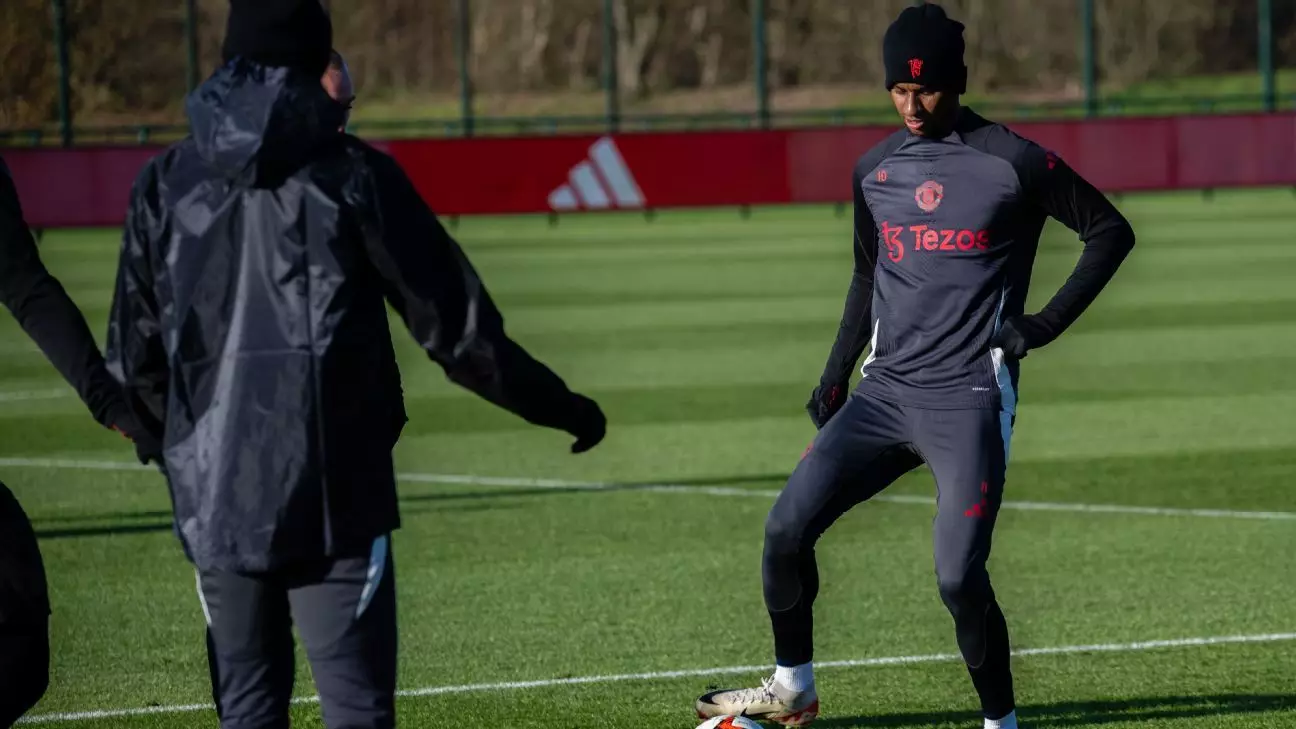Ruben Amorim, the head coach of Manchester United, has taken a firm stance regarding Marcus Rashford’s position within the team. After a string of underwhelming performances, Rashford has found himself sidelined for crucial games, including high-stakes matches against Manchester City, Tottenham, and Bournemouth. In a climate where success is vital, Amorim emphasizes that meeting certain performance standards is non-negotiable for all players, especially for those who hold key positions within the squad. This approach highlights a crucial aspect of modern management in football: accountability.
Interestingly, Amorim has clarified that Rashford’s exclusion stems from performance issues in training rather than any off-field remarks, such as the player’s recent interview suggesting a desire to leave the club. This indicates a shift from a potentially reactive discipline-based approach to a more proactive strategy that prioritizes team cohesion and productivity. Amorim’s assertion that he meets with Rashford daily underscores his commitment to player development but also conveys a message about the importance of consistent performance over public declarations of intent.
Focus on Team Dynamics
The head coach’s remarks about focusing on the “best for the team” resonate deeply in sports management philosophy. By keeping Rashford on the bench until he demonstrates improved engagement and performance, Amorim is not only reinforcing discipline but also fostering a culture of excellence within the team. This method serves to motivate not just Rashford, who is regarded as a player with significant talent, but also his teammates, who are observing how accountability is being enforced. In a time of disappointment for Manchester United, such leadership is critical, and the need for every player to fully invest in the collective effort is paramount.
The Bigger Picture: Resilience and Recovery
Amorim is navigating a storm of challenges as Manchester United seeks to recharge after consecutive defeats. He recognizes that these moments are not just hurdles but also opportunities for personal and collective growth. The coach’s insistence on players pushing themselves and rallying together mirrors broader themes in sports–success is often built in times of adversity. For Rashford, this could be an opportunity to rise to the occasion, channeling his frustration into a reinvigorated performance that could positively influence the team dynamic.
In addressing the scrutiny surrounding Rashford’s situation, Amorim makes it clear that distractions will not derail his focus on team objectives. He assures that the players and coaching staff understand the reasons behind his decisions. This demeanor is crucial for any leader; it exemplifies clarity and purpose, ensuring that personal agendas do not overshadow the collective goal of reviving Manchester United’s fortunes. In the complex world of football, relationships with the media and fans can significantly impact team morale, and Amorim’s ability to manage this effectively reflects his strategic acumen.
In summation, Ruben Amorim’s handling of Marcus Rashford’s exclusion from the squad emphasizes a pivotal approach in today’s football climate: the essential blend of performance accountability and strategic team management. As Rashford navigates this challenging period, Amorim remains poised to guide not just him, but the entire Manchester United squad back to their competitive best.
